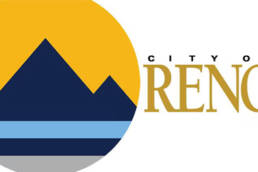Traditional New Year’s resolutions usually entail diet, exercise, and weight loss. Why not take a different approach in 2024 by channeling your energy into home upgrades that can enhance your comfort, safety, and enjoyment now and possibly increase the resale value of your home down the road?
Here are nine ideas:
- Remove home hazards. Identify and eliminate tripping hazards that could cause injuries as you age. They include rugs, wires, clutter, and furniture that doesn’t give you clear pathways in, out, or through a room.
- Plan aging-in-place upgrades. Start saving and planning for significant aging-in-place upgrades. They may include replacing flooring and carpet, replacing a tub with a walk-in shower, installing ramps or chair lifts, lowering kitchen countertops to accommodate a wheelchair, or installing pull-out shelving. It also could include adding an ADU in the backyard to house a caretaker or redesigning your house to make it conducive to multi-generational living.
- Install smart technology. Look into technologies like Amazon Echo and Google Home that allow you to use voice commands to take care of tasks like monitoring home security, controlling the thermostat, and unlocking doors. Such technology also improves a home’s energy efficiency.
- Conduct a home energy audit. A professional home energy auditor can zero in on where you’re losing energy—insulation, HVAC system, windows, and so forth—and recommend fixes that will cut utility costs and increase comfort. Another less expensive option is doing a DIY energy audit. Learn how at https://www.energy.gov/energysaver/do-it-yourself-home-energy-assessments.
- Explore new technologies. Many don’t plan for the end of life for critical systems like HVAC and water heaters or appliances. But when they fail, you’re left scrambling with little time to comparison shop or consider more efficient options like heat pumps. Research and shop now to pick something that delivers energy efficiency, long-term cost savings, and environmental benefits.
- Reduce energy costs. Upgrade your appliances to Energy Star models when it’s time for replacements. They reduce energy consumption and utility costs and are more environmentally friendly than older models. Switching to an Energy Star fridge, for example, can save you about $230 over its 12-year lifetime compared to older models.
- Find incentives. An array of financial incentives for energy-efficient home upgrades can reduce your upfront costs. Some are Federal, while others are state or local incentives. Also, check with your local utility company. Some companies offer free lightbulbs, energy audits, and rebates.
- Plan routine maintenance. Establish a maintenance schedule and add the tasks to your calendar. Planning prevents small problems from becoming expensive fixes. Here are some to-dos:
- Change furnace filters monthly
- Inspect the roof for damage
- Clean gutters
- Test smoke and carbon monoxide detectors
- Trim trees and bushes
- Clean and inspect the chimney
- Use caulk or weatherstripping to seal gaps and cracks
- Schedule a check-up for your HVAC system
- Flush the water heater
- Replace Batteries in smoke and carbon monoxide detectors
- Do appliance maintenance
- Get organized. Decluttering and home organization has become a booming industry with professional organizers, books and TV shows, and an array of home storage systems. Plus, there are multiple methods, from Marie Kondo’s spark joy approach to Swedish death cleaning. What’s key is finding a strategy that works for you and that you can sustain.








































